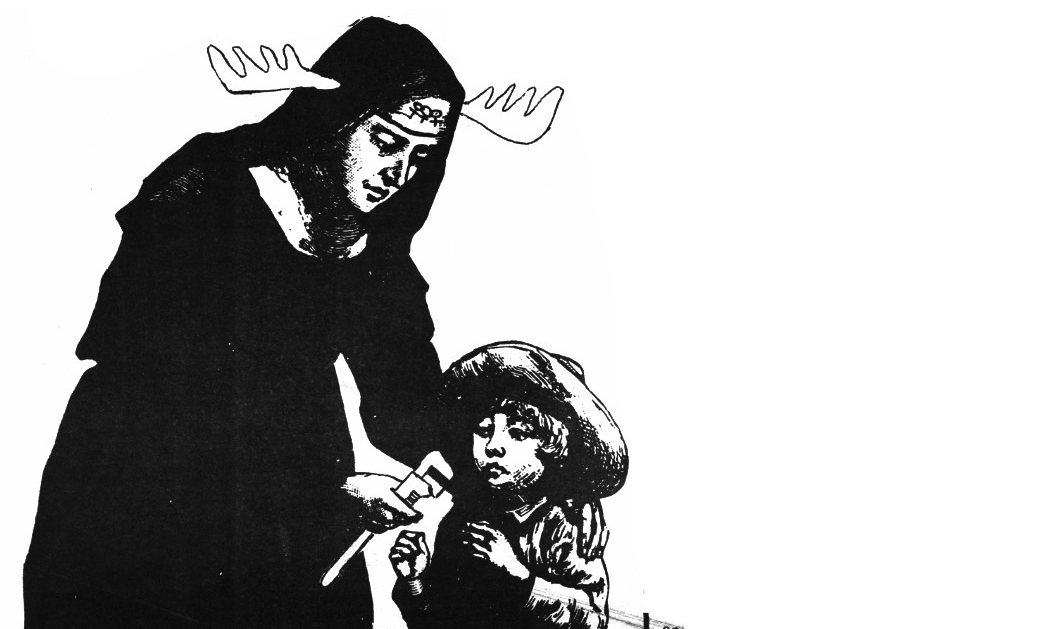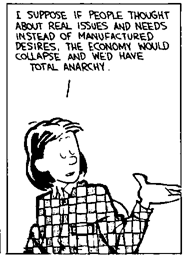The refusal to conceive of human action as divisible.
Oscar Wilde defines a perfect personality as one who develops under perfect conditions, who is not wounded, maimed, or in danger. A perfect personality, then, is only possible in a state of society where one is free to choose the mode of work, the conditions of work, and the freedom to work. One to whom the making of a table, the building of a house, or the tilling of the soil, is what the painting is to the artist and the discovery to the scientist — the result of inspiration, of intense longing, and deep interest in work as a creative force.
People need not only to obtain things, they need above all the freedom to make things among which they can live, to give shape to them according to their own tastes, and to put them to use in caring for and about others.
The marvelous pursuit is born from the desire to create playful complexity in a desert of simplistic convenience. A hobby is a form of consumption, the marvelous pursuit on the other hand, is a rejection of commodified convenience, it can't be bought because it has no price. A marvelous pursuit refuses socially ascribed use. People learn such socially useless things as the names of fern and the grammar of dead languages because they are bored with the mind-dumbing options dished out to them on TV.

Marvelous pursuits are a means to resist alienation from one's environment because they are a temporary means to make that environment one's own, by ascribing one's own, often bizarre, value for things and spaces.

These pursuits often create complexity but a complexity which is opposed to that of the technician. The master of a marvelous pursuit can never be an engineer because the marvelous is by nature useless to society, and therefore to capital.
Hobbies are forms of alienated leisure, compartmentalized parts of one's life, past-times whose purpose is to fill our time with countable accomplishments and enjoyments. The value in marvelous pursuits lies in their self-creation which evades both use-value and exchange value.
Since the riches of information, entertainment, games and new electronics will fail to center and illuminate our lives, however, their diversion will more and more lead to distraction, the scattering of our attention and the atrophy of our capacities. They will be more diverting due to greater variety and closer fit with our individual tastes. It is already apparent that the new video technology is not used by people as the crucial aid that finally allows them to develop into the historians, critics, musicians, sculptors, or athletes that they have always wanted to be.
Existence is not itself a good thing, that we should spend a lifetime securing its necessaries: a life spent, however victoriously, in securing the necessaries of life is no more than an elaborate furnishing and decoration of apartments for the reception of a guest who is never to come.Alfred Edward Housman, Introductory Lecture, 1892.
Divided Labor
Divided labor must be distinguished from the specialization of work which is as old as human culture and practiced in the very pretechnological work world that some of us admire. Nor is the division of a work process into steps and the frequent repetition of just one step characteristic of modern industrial labor.
A tinsmith who is about to make a great number of funnels would not complete one after another, each from start to finish, but would first do all the drawing on sheet metal, then all the cutting, and so on, and would make specialized devices which the economy of scale would permit and reward. The typically modern division of labor, on the other hand, divides one process into many simple parts and assigns the performance of each to a single worker. The monotonous and endless repetition of one small task is typical of much of modern labor and gives it its stupefying and draining character.
Divided labor favors dexterity only if we understand by the latter the ability to execute a simple motion quickly and reliably. If by dexterity we mean the manifold and trained ability of bodily timing, strength, and responsiveness, then the division of labor is the elimination of dexterity. The division of labor makes work more reliable because the simplicity of divided labor eliminates the need of skill, thus enlarging the labor pool and making workers more freely substitutable for one another.
Through a practice we are able to accomplish what remains unattainable when aimed at in a series of individual decisions and acts.Albert Borgmann, Technology and the Character of Contemporary Life
- Marvelous Pursuits
- No one should ever work, Bob Black
- Introductory Lecture, Alfred Edward Housman
incoming: deliberate varvara devlog technocracy commodity merveilles